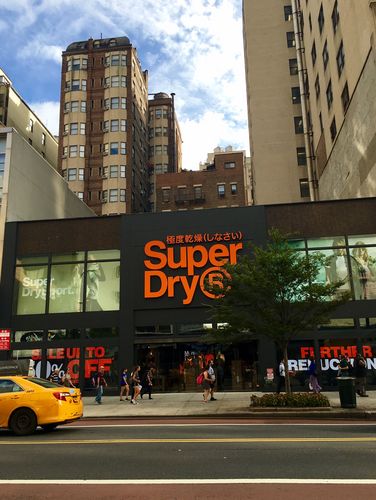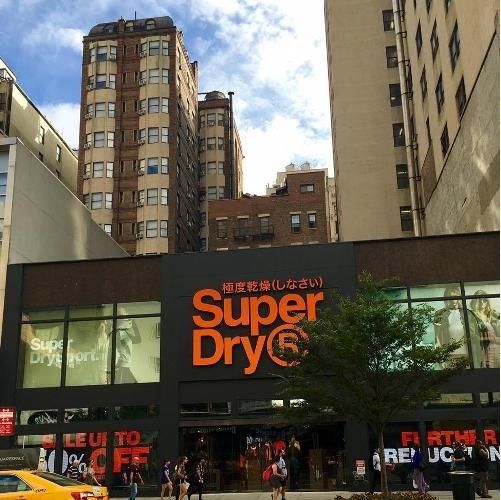A New York City property that investors were told would be home to an iconic Apple store has instead wound up stuck in a mortgage bond facing hundreds of millions in unpaid debt. Apple never built a store on the 34th Street site.
Not one penny of the principal on the US$100m mortgage against the building has been repaid, like much of the 2006-era Wachovia mortgage bond’s remaining US$1.7bn collateral.
Wachovia Securities, which sold the bond, long ago went out of business.
Most loans left in the deal come due by December, including on 21-25 W 34th Street, and nervous investors are facing potentially big losses if the mortgages default.
The saga of the deal – broken promises and a mountain of debt – is a reminder of how pre-crash securitisations are still punishing CMBS investors a decade later.
“Bond buyers that bought into the securitisation bought into the propaganda provided to them,” said one investor, who asked not to be named and was one of the buyers.
“They were buying in with Apple as a tenant,” he told IFR. “The bondholders are going to take a bath.”
Loan behold
The CMBS market was riding high in 2006 when Wachovia offered investors access to the pool of 150 mortgages in the CMBS.
The Apple property on a busy Manhattan shopping corridor was such an important part of the deal that Wachovia included a drawing of an Apple store on site in the prospectus.
Apple agreed to pay the owners – Wharton Properties and then-partner SL Green Realty – an average US$6m per year in rent over 15 years, according to documents reviewed by IFR.
Apple looked to be a promising long-term tenant, and the developers convinced the company to pay for building the store itself.
Typical of the churn-and-boom mentality at the time, Wharton and SLG then took out loans for even more than the property’s US$125m appraisal value.
Wachovia provided a US$100m senior loan and others provided US$28.6m of mezzanine debt.
Wachovia then put the entire senior portion into a pool of 149 commercial mortgages that it securitised in a US$3.4bn deal.
And then Apple decided not to move in.
Does not compute
With the Apple store gone, 21-25 West 34th Street was a decidedly less attractive proposition.
Under the contract, Apple still had to build something. But it erected something about 30% smaller – and far less eye-catching than its stores.
Moreover, the building was not completed until 2009, after the crisis had kicked in. The building has been vacant for about four of the past six years.
Meanwhile, a source with knowledge of the transaction said current tenant Superdry is paying US$1.5m in rent – or just one-quarter of what Apple had agreed. While that hurts Apple, it also impacts on the value of the building.
“At the end of the day,” said Steve Kuritz, managing director in the conduit CMBS surveillance group at Kroll Bond Rating Agency, “the value of the property is directly dependent on the income it will produce.”
Kroll estimates the property is currently worth US$75m–$85m – far short of the US$125m valuation used to underpin the bonds 10 years before.
“You’re in a market right now where you have oversupply of retail and a challenging retail market,” said Richard Cohan, a consultant at 34th Street Partnership, a non-profit business association.
Cohan said landlords on the same block as Superdry have been asking for rent of US$650–$900 per square foot.
But Superdry is paying around US$300 on the most expensive ground floor – and only about US$100 on the building’s upper levels.
“Some are asking for US$800 a square foot,” the person with knowledge of the transaction said. “But that’s not the world we live in today.”
Pie in the sky
One final twist is that Wharton – sole owner since buying out SL Green’s stake in 2013 – has already sold off the property’s lucrative air rights.
The right to build upward, or prevent someone from doing so, is vital – and expensive – in cities where room on the ground is maxed out and up is the only way to go.
Two industry sources said they estimated the air rights for the 21-25 West 34th Street property would easily be in the tens of millions of dollars.
According to public documents, Wharton sold them off privately earlier this year to its former partner, SL Green.
Once sold off, they are gone from a property forever. So it can never be raised any higher than its current handful of storeys, making 21-25 West 34th Street now even less valuable.
Moreover, Wharton did not use any proceeds from the sale to pay off even a tiny part of the senior mortgage.
Wharton Properties did not answer multiple requests for comment. Apple and Superdry both declined to comment.
Of course, Wharton and the other debtors still have some four months or so to clear up their mortgages.
But according to data from analytics company Trepp, which tracks commercial mortgages, only US$14m of principal has been repaid on the nearly US$1bn of the biggest loans outstanding.
The bond has taken a hit of almost US$95m on other loans that have gone sour already.
“You are talking about losing a big number here,” the investor said.
“You’d never know unless you are really digging through the weeds. This has the fingerprints of a bad deal from day one.”

